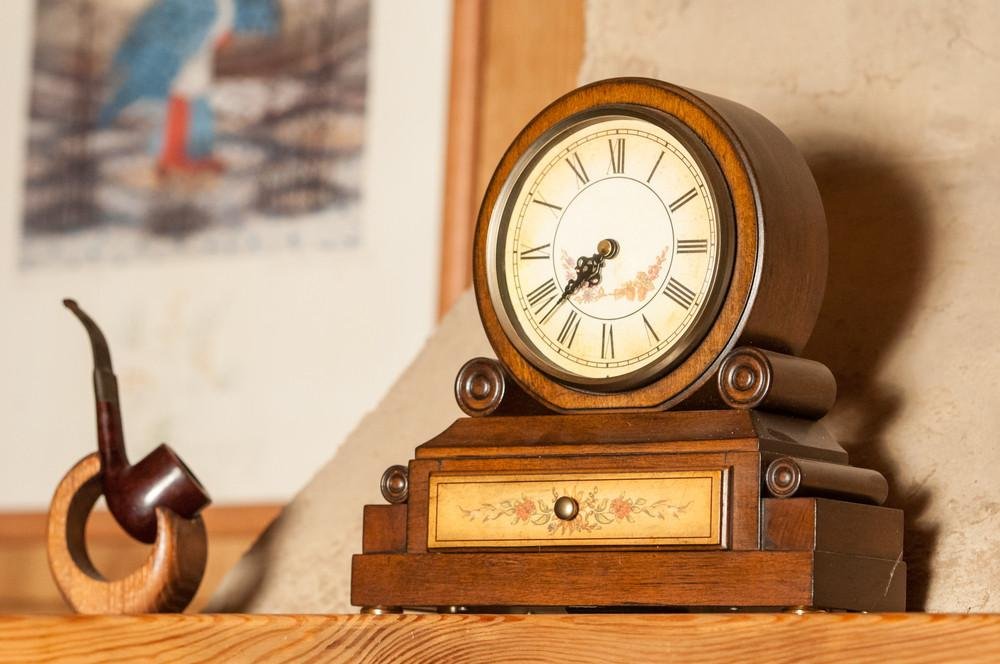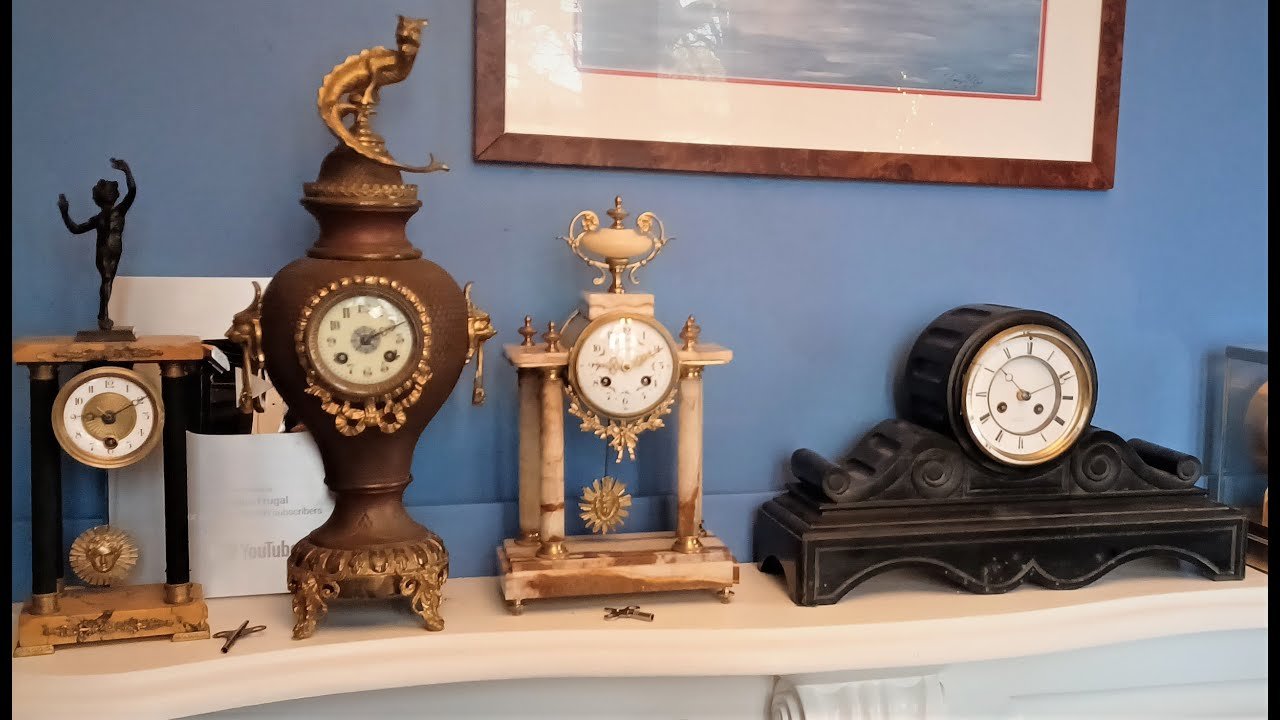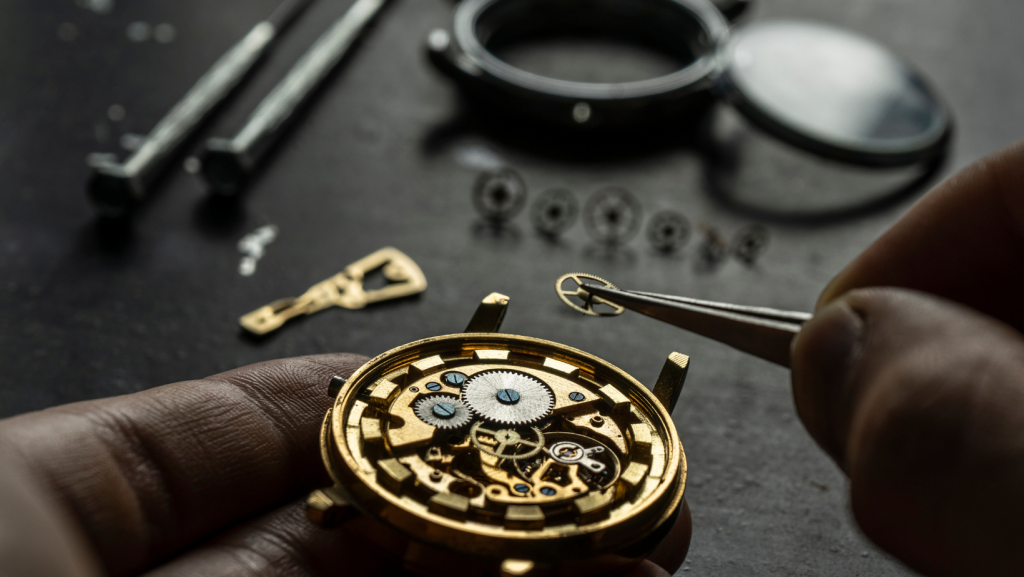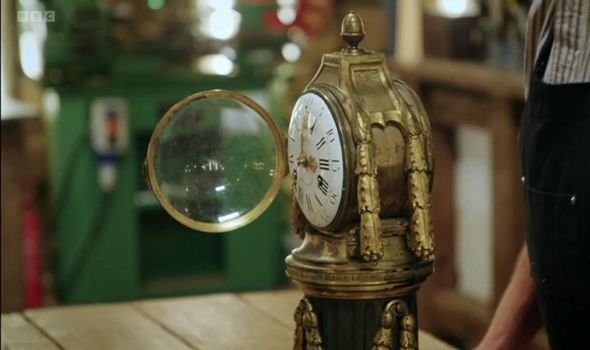Proper maintenance is key to keeping your clock running smoothly and avoiding costly repairs. Whether you own a cherished antique or a modern timepiece, following these essential tips will help ensure your clock remains in optimal condition for years to come. Here’s a comprehensive guide to maintaining your clock and preventing future issues.
1. Regular Cleaning
Dust and debris can accumulate inside your clock, affecting its performance. Regular cleaning helps prevent this buildup:
- Dust the Exterior: Use a soft, dry cloth to gently dust the clock’s exterior, including the face and casing.
- Clean the Glass: Wipe the clock glass with a glass cleaner and a lint-free cloth to keep it clear and free from smudges.
- Avoid Moisture: Never use water or abrasive cleaners, as they can damage the clock’s finish and internal components.
2. Keep It Well-Lubricated
Lubrication is crucial for the smooth operation of clock mechanisms:
- Use Clock Oil: Apply clock-specific oil to the moving parts of the mechanism to reduce friction and wear. Avoid using general-purpose oils, as they can cause damage.
- Avoid Over-Lubrication: Too much oil can attract dust and grime, so use sparingly and ensure excess oil is wiped away.
3. Check for Accurate Timekeeping
Regularly check your clock’s timekeeping accuracy and make necessary adjustments:
- Set the Time Correctly: Use the clock’s adjustment feature to set the time accurately. Avoid moving the hands backward, as this can damage the mechanism.
- Monitor Performance: Observe the clock’s performance over time and make adjustments as needed to ensure it keeps accurate time.

4. Protect from Environmental Factors
Environmental conditions can significantly impact the condition of your clock:
- Control Humidity: Avoid placing your clock in areas with high humidity or temperature fluctuations, as these can cause rust and other damage.
- Avoid Direct Sunlight: Protect your clock from direct sunlight to prevent fading and overheating.
5. Handle with Care
Proper handling can prevent damage to your clock:
- Avoid Jostling: Handle the clock gently to avoid jostling or bumping, which can affect the mechanism’s alignment.
- Use Proper Tools: When making adjustments or repairs, use appropriate tools to prevent damage to delicate parts.
6. Perform Regular Inspections
Regular inspections help identify potential issues before they become serious:
- Inspect for Wear and Tear: Check for any signs of wear or damage, such as squeaking, sticking, or irregular timekeeping.
- Consult Professionals: If you notice any issues, consider consulting a professional clock repair technician for a thorough inspection and maintenance.
7. Keep the Mechanism Clean
Internal components require periodic cleaning to maintain their performance:
- Dust Internal Parts: If you’re comfortable doing so, carefully dust internal components using compressed air or a soft brush.
- Avoid Disassembly: Unless you have experience, avoid disassembling the clock mechanism, as it can be complex and may lead to misalignment or damage.
8. Store Properly When Not in Use
If you need to store your clock, follow these tips to prevent damage:
- Use a Protective Cover: Cover the clock with a dust cover to keep it clean and protected while in storage.
- Store in a Stable Environment: Keep the clock in a stable environment with controlled temperature and humidity.
9. Check and Replace Batteries Regularly
For battery-operated clocks, regular battery maintenance is essential:
- Replace Batteries on Time: Replace batteries before they run out to prevent leakage and potential damage to the mechanism.
- Use Quality Batteries: Use high-quality batteries to ensure reliable performance and avoid leakage.
10. Seek Professional Maintenance
For complex issues or antique clocks, professional maintenance may be necessary:
- Schedule Professional Servicing: Consider scheduling regular professional servicing to address any underlying issues and ensure your clock remains in optimal condition.
- Trust Experts: Work with experienced clock repair specialists who can provide expert advice and services.
Conclusion
Maintaining your clock with these essential tips can help prevent future repairs and extend the life of your timepiece. Regular cleaning, proper lubrication, environmental protection, and careful handling are all key to ensuring your clock remains in excellent condition. By following these practices, you can enjoy the beauty and functionality of your clock for years to come, minimizing the need for costly repairs and preserving its value.




Wir bei Casino.org möchten Spielern helfen, ehrliche und wichtige Informationen so transparent und einfach wie möglich darzustellen. Beim Bezahlen im Online Casino kannst du einfach deinen My Paysafecard Login benutzen und
von dort aus direkt einzahlen. Auszahlungen sind dort möglich und du
kannst das Guthaben später auf dein Bankkonto oder
deine myPaysafecard Mastercard übertragen. Damit dir das nicht passiert, zeigen wir dir die häufigsten Fehler beim
Bezahlen mit Paysafecard und geben dir Tipps, wie du sie ganz einfach vermeidest.
Der Betrag wird sofort gutgeschrieben, sodass du schnell und einfach
eine Einzahlung in deinem bevorzugten Paysafecard Casino vornehmen kannst.
Um in einem der besten Online-Casinos spielen zu können, muss man zunächst natürlich eine Einzahlung
vornehmen. Es ist eine einfache Art, Spaß zu haben, sie sind 24/7 verfügbar und voller spannender Spiele.
Auch neue Online Casinos bieten viele tolle Spiele und reichlich Spannung.
Dazu gehören beispielsweise die sichere Ein- und Auszahlung sowie
die benutzerfreundliche App. Aber die Testsieger konnten mit ihrem
Portfolio, dem lukrativen Willkommensbonus und einer gültigen Lizenz
punkten.
Zahlung über myPaysafe bestätigen und schon ist das Geld auf
dem Spielkonto. Bereits ab 5 Euro ist man dabei und qualifiziert
sich zudem für das Willkommenspaket mit bis zu
100 Freispielen. AdmiralBet macht aus herkömmlichen PaysafeCard Zahlungen eine direkte Eintrittskarte zu über 300 Online
Spielautomaten. Einzahlungen ab 10 € sind sofort auf eurem Konto und der Willkommensbonus von bis zu 100
€ plus 10 Freispiele täglich wartet ebenfalls auf euch, natürlich mit fairen Umsatzbedingungen. Für sicheres Spielen sorgt unter
anderem die Lizenz der GGL. Die Mindesteinzahlung liegt bei 1€, sodass auch diejenigen mit besonders kleinem Budget am Spielspaß teilnehmen können.
References:
https://online-spielhallen.de/casino-of-gold-bonus-spiele-anmeldung/
Whether you are a low stakes player or a high roller, you’ll find
the table that’s just right for you at this casino.
Players who have signed up for the Absolute
Rewards program can experience Traditional and Baida Mahjong on select days
at the dedicated Mahjong room located on the second level.
The opportunities for gaming are endless and the choice remains with you.
The pictures you use to list items are going to make a first impression on your buyers!
When a buyer knows their purchase will be protected by Facebook marketplace, most people will be more likely
to purchase items from your seller account. Making sure the items
you’re selling are eligible for purchase protection will help you establish yourself as
a trusted seller with the eCommerce platform and each buyer.
Packaging items securely, shipping them promptly, and providing tracking information is a
great way to establish yourself as a reliable seller.
References:
https://blackcoin.co/plinkocasino-a-complete-overview/
casinos online paypal
References:
http://www.lingoli.io
casino mit paypal einzahlung
References:
https://swav.sa/employer/paypal-casinos-2025-best-paypal-slot-sites-in-the-uk/